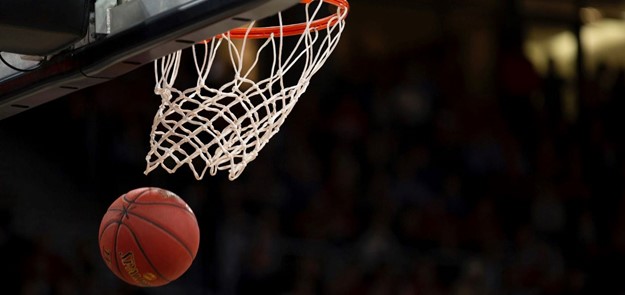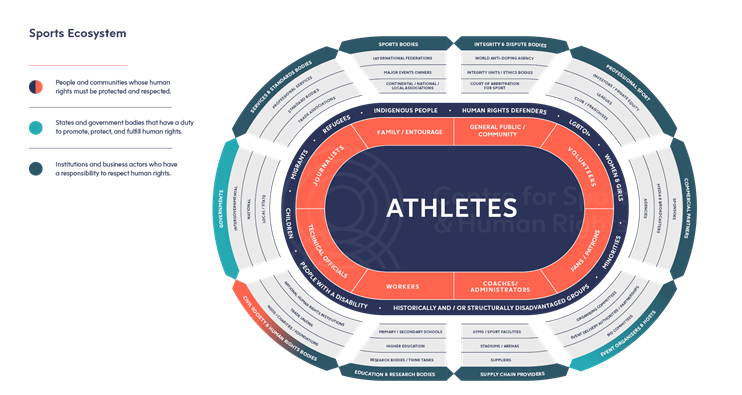
Sports Ecosystem
The world of sport is often viewed through hierarchical structures of governance and ownership, reflecting both the power differentials within the sector, including the ways through which sports bodies have positioned themselves.
Power dynamics in traditional sports structures can exacerbate human rights risks to athletes and others. Reimagining sport from a holistic people-centred perspective is an important way to address these concerns. By applying a human rights lens to the ecosystem of sport, an arena that represents an intricate web of symbiotic relationships is revealed encompassing those affected and between different groups of institutional actors. A rights-focused ecosystem model with people at the centre, shows that each of these interactions between all stakeholder groups may impact positively or negatively – different individuals and communities, through the direct and indirect roles they play.

People and their rights should be at the centre of sport. Indeed, people make sport happen – athletes first and foremost, including individuals who are involved in sport at all levels - from local community sports, to high school, university, elite and professional. At the heart of the model and surrounding athletes are the important stakeholder groups of family/entourage, coaches/administrators, fans/patrons, volunteers, technical officials, general public/ community, journalists and workers. People in these different roles and capacities may be impacted by each other or any of the institutional actors represented in the ecosystem.
Regardless of the role they play, the extent to which people may be adversely impacted depends in part on a range of characteristics or vulnerabilities that may have specific protections in law. These include for example: children, women and girls, LGBTQI+, people with a disability, historically and/or structurally disadvantaged groups, minorities, migrants, refugees, indigenous peoples and human rights defenders.
The most important aspect of this ecosystem-based approach is that sport is the product of and influenced by many actors - private, public, third sector (not-for-profit), and at local, national, regional and international levels.
While sports bodies play an important role in delivering day-to-day sport and events, they are one of many actors that comprise the sports ecosystem. Given the interdependencies within the ecosystem, actions, behaviours and decisions of every individual and institution can have a butterfly effect. When individuals or institutions fail to respect, protect and/or fulfil human rights, the trust and legitimacy of all actors is compromised and the position of sport as a positive force for good is detrimentally impacted. The Centre has structured and positioned itself to engage with all actors to realise a world of responsible sport.